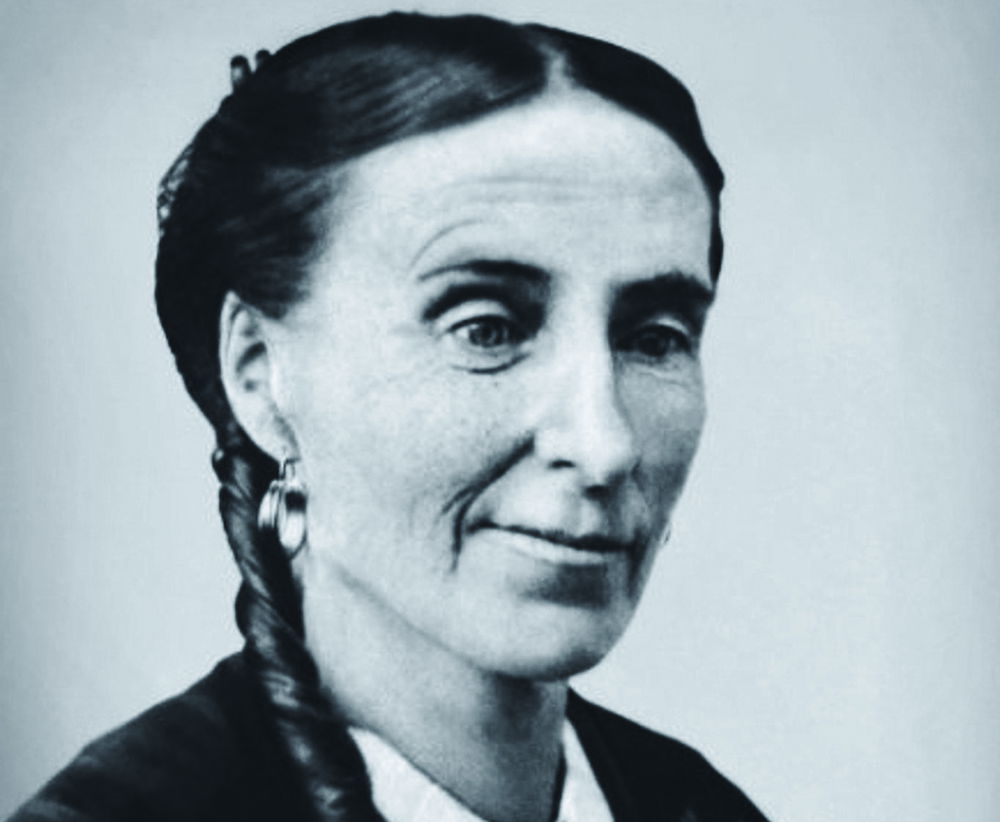Writing Wrongs | History Today - 5 minutes read

News travelled slowly in the 1840s. Newspapers that were often printed just once or twice a week had to be carried overland by horse-drawn coaches and overseas by vessels that took the best part of two weeks to traverse the Atlantic. There was no instant immersion in events unfolding in distant parts of the world. Nevertheless, there was a great appetite for news of foreign affairs and, if one were interested, it would eventually find its way to even the remotest rural outpost.
Such was the case with the gifted young writer Frances Browne, the so-called ‘Blind Poetess of Ulster’, who lived in a simple home in Stranorlar in the Finn Valley of County Donegal with her postmaster father and wider family. Unable to see after a childhood bout of smallpox, the self-educated Browne, the seventh of 12 children, was particularly exercised by, and eager to learn about, tales of Russian oppression. Her epic 1844 poem ‘The Star of Attéghéi’, a romance set against the backdrop of Russia’s genocidal and generations-long subjugation of the Circassians, a Muslim ethnic group in the Caucasus, made her name.
Although in the official annals this conflict lasted 101 years, from 1763 to 1864, its repercussions were still being felt in the Chechen wars of the early 2000s. The conflict went through a particularly decisive phase in the late 1830s and early 1840s, when the ever-curious, ever-inquiring Browne was in her twenties. Replete with phrases such as ‘the hated Cossack’s camp’ and lines about how ‘Moscov power and Moscov hate’ had made Circassian ‘dwellings desolate’, ‘The Star of Attéghéi’ saw Browne come down firmly on the side of the oppressed – those willing to perish, so she described it, ‘on freedom’s altar’.
Confronted with the might of ‘The Czar, and all his warlike powers’, she marvelled at the efforts of the Circassian soldiers ‘To drive the Moscov legions far/Before the mountain scimitar’. On the indomitable will of the Circassian people, she wrote:
But still, the Moscov poured his hordes
In vain upon the mountain swords,—
For many a waste and many a grave
His legions found—but not a slave!
At one point, Browne raised the possibility of a military intervention by the European powers, including Britain’s Queen Victoria, before whose ocean-owning ‘sails’, she asserted, the Moscov ‘quails’. There would be no such intervention or military aid. Nevertheless, against a background of numerous fraught diplomatic entanglements, and with the Crimean War not far off, this was a time of extreme Russophobia in Britain. Through the course of the 100-plus page poem, Browne expanded her vista to include other peoples and nations trampled upon by Russian aggression:
There, are Siberia’s hardy sons,—
The children of the conquering Huns,—
The peasant from the Caspian’s side,—
The serf from near the Baltic’s tide,—
Bringing to mind current events in the region, there is even a scene of two ‘warrior youths’ who are: ‘By winter’s hungry wolves pursued/Through Ukraine’s boundless solitude.’
The fate of Poland was another major concern for Browne, in both this and other works, as this was the era of the Krakow Uprising and the extinguishing of the last vestiges of an independent Poland by the combined autocratic powers of Austria, Prussia and Russia. Invariably, Browne, whose Irish nationalism was to the fore of her best-known poem, ‘Songs of Our Land’, linked these conflicts back to Ireland’s own struggle, asking in ‘On the Death of Thomas Campbell’, an elegy to the Scottish poet and friend of the Polish cause: ‘Wake, harp of Erin, wake thy saddest tone/And mourn the loss of nations as thine own.’
A broader humanitarian sentiment, meanwhile, is evident in poems such as ‘The Removal of the Cherokees’, ‘The Jewish Pilgrim’ and ‘The Land of the Slave’, the latter of which appeared in the Northern Whig in January 1846 and was written in response to the Black abolitionist Frederick Douglass’ tour of Ireland. To some degree, Browne can appear to be an Irish Elizabeth Barrett Browning, righteous, combative and unafraid of causing controversy or offence in her attacks on tyrannical forces. Nevertheless, these politically charged and socially progressive poems were just one strand of Browne’s oeuvre, and were combined in her volumes with lyrical pastoral idylls and, as was common for the time, poems based on tales from Greek and Roman antiquity.
Helped by the award of grants from leading politicians and patrons of the arts like Lord Lansdowne and Sir Robert Peel, Browne, together with her sister and amanuensis Rebecca, left her isolated Donegal home in 1847, moving first to Edinburgh and then to London, where she was a fixture of the literary scene and carved out a successful career as poet, novelist and essayist. She also authored a bestselling children’s book, Granny’s Wonderful Chair. Nevertheless, Browne was quickly forgotten after her death in 1879 and languished on the edges of the Irish literary canon for over a century. Indeed, it has only been in the last decade or so that there has been renewed interest in her life.
Laurence Fenton is the author of ‘I Was Transformed’ Frederick Douglass: An American Slave in Victorian Britain (Amberley, 2018) and Frederick Douglass in Ireland: ‘The Black O’Connell’ (The Collins Press, 2014).
Source: History Today Feed